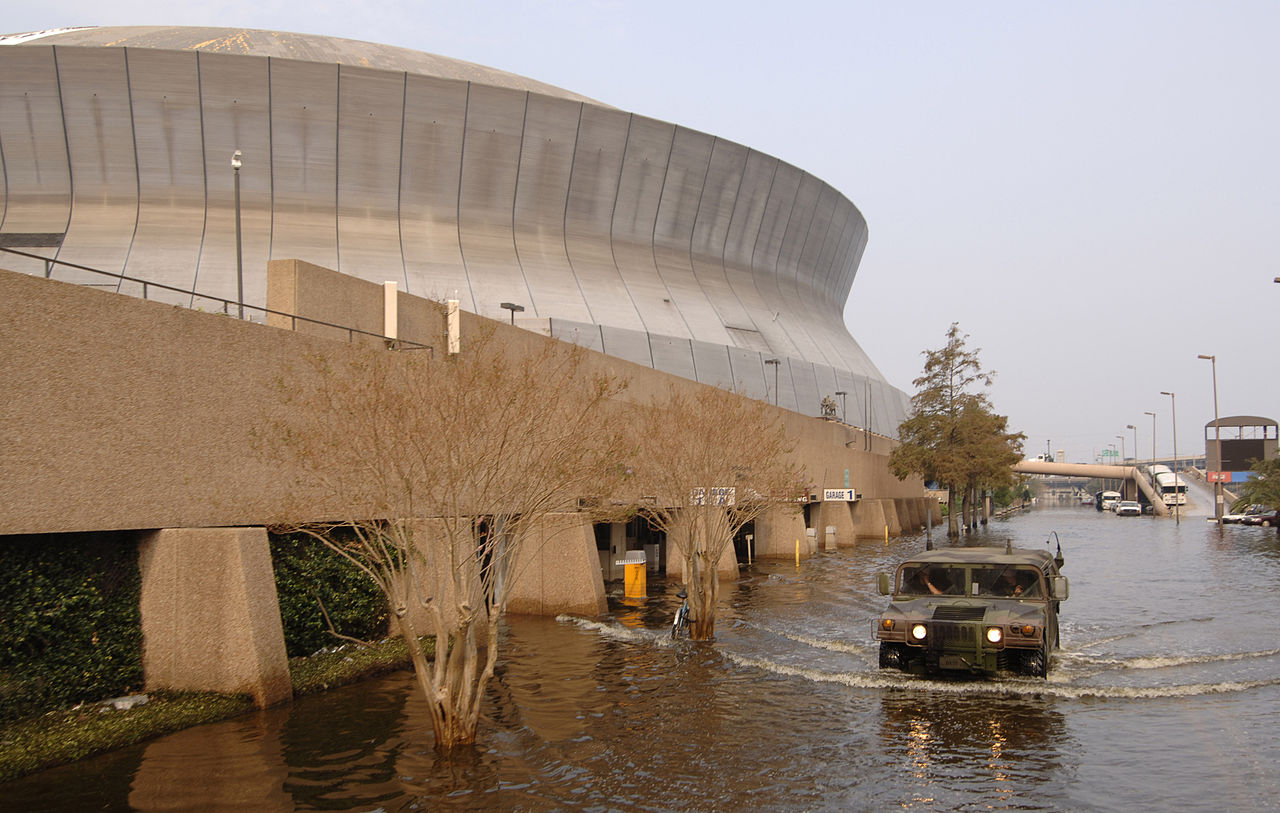Black Lives Now, Black Lives Then
A look at Hurricane Katrina, Black Lives Matter, and inequity in America.

Stephen Henderson talks with David Dennis, writer and commentator on the Black Lives Matter movement, Darrell Dawsey, communications director of the Michigan chapter of the ACLU, and Dr. Carl Taylor, professor of Sociology at Michigan State University, about the connection between Hurricane Katrina and the Black Lives Matter movement.
- Changing communication: Dennis says that he believes if there had been Twitter during and after Katrina, more lives might have been saved because people would have had a way to communicate and bring attention to problems.
- Pushing people out of the cities: According to Dennis, the gentrification of New Orleans after Hurricane Katrina is a part of a larger practice in America of displacing black Americans and other people of color in favor of young white people and wealthy white men. He says this phenomenon also occurs in other cities, such as Detroit and Chicago, but happens without the help of a hurricane. Dennis also believes that Katrina revealed that black people are expendable in America. One listener suggests that “Detroit went through a dry Katrina,” and Dawsey adds that gentrification in New Orleans and Detroit are no mistake. Stephen acknowledges this as a systematized practice in America that disenfranchises people based on race and class.
- Believing black narratives: When asked to connect Hurricane Katrina and Black Lives Matter, Dennis says that Katrina awakened him to inequality in America, while Mike Brown’s death awakened many other people. Two callers take issue with saying that anti-black racism played a role in Katrina. They say people came together to support and fix the city after Katrina, and that the racial dynamics were not intentional or malicious. In response, Dawsey asks the callers why they do not accept black people’s narratives about their own experiences. He tells them that the reason why the Black Lives Matter movement is important is because it’s exposing things that black people have been called crazy for feeling and speaking about for years.
- Perception of BLM: Stephen asks about presidential candidate Ben Carson’s comment that Black Lives Matter focuses too narrowly on police violence and not on other issues that affect black Americans, such as black-on-black violence. Dennis says this is a mischaracterization of the movement, and that Black Lives Matter focuses on a wide variety of issues.
- Willfully ignoring racism: Taylor says that those who do not see the role that race and racism played in Katrina simply do not want to see it. He compares the role of race in Detroit and Katrina and says, “people refuse to look at it and say terrible things.”
- Will things improve?: Stephen asks Dawsey if he thinks there is a way to talk about race without having to defend the need to talk about it. Dawsey says he does not know if we will ever get there, although he would like to be optimistic.
Click the audio link above to hear the full conversation.
